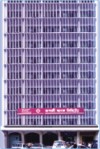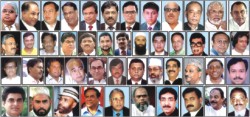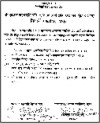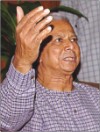| |
Month in review: Bangladesh
 BSEC Bhaban in Karwan Bazar goes up in flames on February 26, around 10.30 am, killing 4 and injuring scores. About 1,000 people get trapped inside the 11-story building that houses popular satellite TV channels NTV and RTV, also the Amar Desh newspaper, Dhaka branch of Chittagong Stock Exchange, Dandy Dyeing, and other government and private offices. The fire brigade, air force, army and the police undertake Herculean rescue efforts broadcast live on TV. A few hours later the fire comes under control but only after taking a huge toll on life and property. BSEC Bhaban in Karwan Bazar goes up in flames on February 26, around 10.30 am, killing 4 and injuring scores. About 1,000 people get trapped inside the 11-story building that houses popular satellite TV channels NTV and RTV, also the Amar Desh newspaper, Dhaka branch of Chittagong Stock Exchange, Dandy Dyeing, and other government and private offices. The fire brigade, air force, army and the police undertake Herculean rescue efforts broadcast live on TV. A few hours later the fire comes under control but only after taking a huge toll on life and property.
 The government approves a proposal to sell out its remaining 26 percent shares in Rupali Bank to Saudi Prince Bandar for $128 million. That would give the prince 93% ownership of the state-owned bank. World Bank and IMF have been pushing long for the privatisation of all four state-owned banks. The Saudi prince had bought 67% shares of the bank from the BNP-led coalition government. He plans on investing $150 million to improve the bank's condition over three years. The government approves a proposal to sell out its remaining 26 percent shares in Rupali Bank to Saudi Prince Bandar for $128 million. That would give the prince 93% ownership of the state-owned bank. World Bank and IMF have been pushing long for the privatisation of all four state-owned banks. The Saudi prince had bought 67% shares of the bank from the BNP-led coalition government. He plans on investing $150 million to improve the bank's condition over three years.
Weeks into the Fakhruddin Ahmed-led caretaker government's declaration of war against corruption, midnight sweeps by the joint forces net some big names in Bangladesh's politics and business. From the BNP camp, arrestees include former communications minister Nazmul Huda, former prime minister Khaleda Zia's parliamentary affairs adviser S.Q. Chowdhury, former state minister for civil aviation Mir Nasir Uddin, former Dhaka-10 lawmaker and BNP  chairperson Khaleda Zia's political secretary Mosaddak Ali Falu, former state minister for power Iqbal Hasan Mahmud, former state minister for labour and employment Amanullah Aman, former deputy minister for land Ruhul Quddus Talukder Dulu, former lawmaker from Khagrachhari Abdul Wadood Bhuiyan, former lawmaker from Sylhet Naser Rahman who is also former finance minister Saifur Rahman's son, former lawmaker from Comilla Manjurul Ahsan Munshi. From the Awami League camp: former home minister Mohammad Nasim, adviser to AL and Beximco vice-chairman Salman F. Rahman, former state minister for planning Mohiuddin Khan Alamgir, former member of parliament Lotus Kamal, and Swechhasebak League general secretary Pankaj Devnath. The government publishes a list of "50 corruption suspects" with a vow to take forward the mission in full swing. chairperson Khaleda Zia's political secretary Mosaddak Ali Falu, former state minister for power Iqbal Hasan Mahmud, former state minister for labour and employment Amanullah Aman, former deputy minister for land Ruhul Quddus Talukder Dulu, former lawmaker from Khagrachhari Abdul Wadood Bhuiyan, former lawmaker from Sylhet Naser Rahman who is also former finance minister Saifur Rahman's son, former lawmaker from Comilla Manjurul Ahsan Munshi. From the Awami League camp: former home minister Mohammad Nasim, adviser to AL and Beximco vice-chairman Salman F. Rahman, former state minister for planning Mohiuddin Khan Alamgir, former member of parliament Lotus Kamal, and Swechhasebak League general secretary Pankaj Devnath. The government publishes a list of "50 corruption suspects" with a vow to take forward the mission in full swing.
 Awami League scraps the infamous five-point MoU with Bangladesh Khelafat Majlish. Also cancelled: all deals, agreements and seat sharing with different political parties in the grand alliance including 14-party coalition. "We had made some deals and agreements with some parties as part of our election strategy centring the January 22 poll. Since the election was cancelled, those deals and agreements have automatically been cancelled," AL acting general secretary Obaidul Quader tells newsmen. Awami League scraps the infamous five-point MoU with Bangladesh Khelafat Majlish. Also cancelled: all deals, agreements and seat sharing with different political parties in the grand alliance including 14-party coalition. "We had made some deals and agreements with some parties as part of our election strategy centring the January 22 poll. Since the election was cancelled, those deals and agreements have automatically been cancelled," AL acting general secretary Obaidul Quader tells newsmen.
 Relief thieves -- ministers, MPs and their lackeys -- make shocking newspaper headlines as the joint forces recover large amount of relief goods -- CI sheets and other essential items -- from their possession. February, as anti-corruption drive spreads around the country, reconfirms the widely believed notion that politicians are, in fact, shameless embezzlers of public money. Relief thieves -- ministers, MPs and their lackeys -- make shocking newspaper headlines as the joint forces recover large amount of relief goods -- CI sheets and other essential items -- from their possession. February, as anti-corruption drive spreads around the country, reconfirms the widely believed notion that politicians are, in fact, shameless embezzlers of public money.
 Nobel Peace Prize laureate Professor Muhammad Yunus declares his entry into politics. The promised party, styled Nagorik Shakti (Citizens' Power), promises a platform for those who want a change in the country's ever-deteriorating political scenario, the never-ending saga of Khaleda-Hasina's rivalry. The professor refrains from detailing his political ideology and vision for the future. Nobel Peace Prize laureate Professor Muhammad Yunus declares his entry into politics. The promised party, styled Nagorik Shakti (Citizens' Power), promises a platform for those who want a change in the country's ever-deteriorating political scenario, the never-ending saga of Khaleda-Hasina's rivalry. The professor refrains from detailing his political ideology and vision for the future.
 A Bangladeshi expatriate cab driver in New York, Osman Chowdhury, finds 31 diamond-rings in the back seat of his cab and sticking to the age-old motto, "honesty is the best policy," returns them to their rightful owner, a woman passenger who is a jeweller. This makes headlines worldwide lauding this remarkable example of honesty and Osman instantly becomes a hero. A Bangladeshi expatriate cab driver in New York, Osman Chowdhury, finds 31 diamond-rings in the back seat of his cab and sticking to the age-old motto, "honesty is the best policy," returns them to their rightful owner, a woman passenger who is a jeweller. This makes headlines worldwide lauding this remarkable example of honesty and Osman instantly becomes a hero.
Photos: Star |

